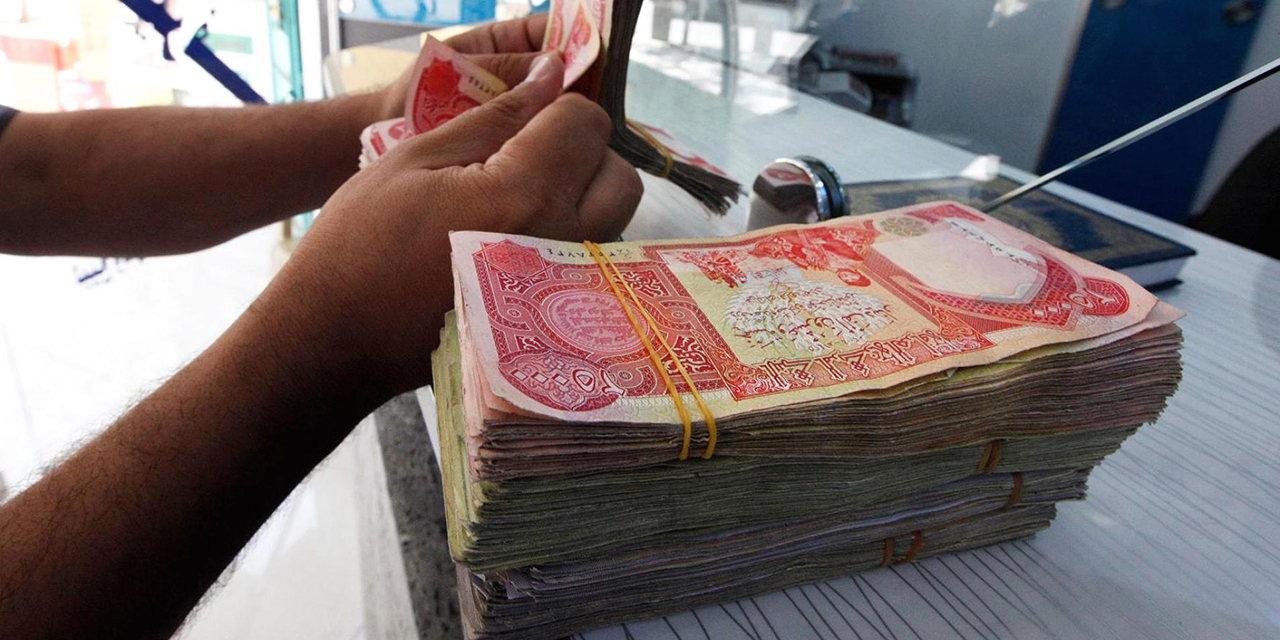The Central Bank of Iraq (CBI) auctioned over $274 million on Sunday, with the majority going towards foreign balances. As Iraq grapples with currency controls and international sanctions, the black market continues to thrive, and gold prices remain stable in Baghdad and Erbil.
Foreign Currency Auction Highlights
The Central Bank of Iraq (CBI) auctioned $274,469,407 on Sunday, allocating most of it to foreign transactions. According to the CBI report, $257,110,407 was directed to external balances through transfers and credit transactions, while only $17,350,000 was dedicated to cash deals. Two banks participated in cash deals, and 16 banks processed external transfers. Additionally, 16 exchange companies were involved in the auction. This auction follows a series of measures by the CBI to regulate dollar usage in the domestic economy, reflecting the country’s ongoing efforts to manage its foreign currency reserves effectively.
Tackling Money Laundering and Sanctions
Iraq’s central bank has intensified its efforts to combat money laundering and terrorism financing. In May, 197 companies were banned from participating in foreign currency auctions. The adoption of the SWIFT system for international financial messaging, implemented at the end of 2022, further aims to ensure compliance with international sanctions. Despite these measures, the black market remains active, driven by the high demand for dollars in a country where the official exchange rate is fixed at 1,320 dinars per dollar, but the unofficial rate is significantly higher, trading at around 1,470 dinars per dollar.
Impact of Sanctions on Dollar Transactions
Iraq’s close commercial ties with Iran, coupled with the sanctions preventing dollar transfers to Iranian banks, have pushed Iraqi traders to the black market. Prime Minister Mohamed Shia al-Sudani acknowledged the challenges posed by these sanctions, which have affected dollar availability in the official channels. The Iraqi government has responded by encouraging importers of high-demand goods, such as cars and gold, to use official channels for dollar transactions. However, the black market’s persistence reflects the ongoing difficulties in controlling currency flow amid the broader geopolitical and economic pressures.
Stability in Gold and Currency Markets
On Sunday, gold prices in Baghdad and Erbil markets remained stable, despite the fluctuations in the currency exchange rates. In Baghdad, the price for a mithqal (five grams) of 21-carat gold ranged from 482,000 to 516,000 IQD, depending on the source, with similar prices reported in Erbil. Meanwhile, the US dollar’s exchange rate against the Iraqi dinar experienced a slight decline in both Baghdad and Erbil, with rates settling at around 149,750 dinars per 100 dollars. These developments highlight the ongoing challenges in Iraq’s financial landscape as the country navigates its complex economic environment.
For KfutureMedia: Aland Faraidun


